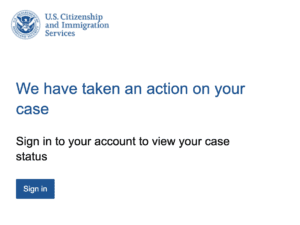President Biden Orders DHS to ‘Defer the Removal’ of Palestinians in the U.S.
President Biden issued an order last week to Secretary of the U.S. Department of Homeland Security (DHS) Alenjandro Mayorkas to direct him to grant deferred enforced departure (DED) to certain Palestinian nationals who are currently in the United States. Aliens who have been granted DED are protected from removal from the United States while their DED is active and may receive work authorization from U.S. Citizenship and Immigration Services (USCIS).
President Biden indicated that he authorized DED to address the deteriorating humanitarian conditions in the Palestinian territories, primarily in Gaza, following Hamas’s October 7, 2023, attack on Israel and Israel’s ensuing military response. DED provides similar benefits to aliens who are removable from the United States as deferred action or Temporary Protected Status (TPS). However, unlike most executive actions that shield aliens in the United States illegally from immigration enforcement, DED is not predicated upon DHS’s exercise of prosecutorial discretion. Rather, DED was created as an offshoot of the president’s foreign affairs powers under Article II of the U.S. Constitution.
So long as the president believes that granting protection from removal and work authorization is in the foreign affairs interests of the United States, the argument goes, the president is able to create this extra-statutory immigration program.
Because DED is derived solely from the president’s foreign affairs powers and has no statutory basis, however, there are no procedural requirements or legal thresholds that must be met in order for the president to issue, renew, or extend the protection. Accordingly, the president can continue to issue and extend DED with or without any articulation of the specific foreign policy interests that are served through its continued use.
So long as the president believes that granting protection from removal and work authorization is in the foreign affairs interests of the United States, the argument goes, the president is able to create this extra-statutory immigration program. The president can do this regardless of whether such program stands in direct conflict with federal immigration law provisions.
Presidents have issued DED despite that fact that the Constitution gives Congress, not the executive branch, plenary power over immigration. Currently, DED is also authorized for certain nationals of Liberia and Hong Kong.
Aside from its dubious legal basis, DED is particularly controversial because the majority of its beneficiaries are either removable from the country (either because they entered illegally, overstayed a visa, or violated the requirements of their status and become subject to removal under existing immigration laws) or were never admitted to the United States with authorization to work in the United States to begin with.
While a minority of DED beneficiaries may currently have a lawful immigration status, Congress has already created numerous programs to provide humanitarian protection to aliens who cannot safely return to their home countries, including, but not limited to, asylum, TPS, and withholding of removal. DED has primarily been used to go around the limitations set by Congress, whose members are more accountable to the will of the American people and the political process.
Additionally, like both TPS and deferred action, presidential orders granting DED are sold to the public as “temporary” protection measures, but are often extended for decades. Nationals of Liberia, for instance, have been eligible for either TPS or DED since 1991. Originally, Liberia was designated for TPS in 1991 because of an ongoing armed conflict — but when conditions in Liberia improved such that extending TPS for these nationals was no longer permissible under the law, President George W. Bush ordered DED for Liberians who benefited from the original TPS designations. DED had been continuously extended through March 2020, under the Trump administration. President Biden, however, reversed President Trump’s decision to wind-down DED protection and renewed DED for Liberians upon taking office.
Not all Palestinians who are physically present in the United States will be eligible for DED under President Biden’s February 14 memorandum. President Biden restricted eligibility from those who:
- Have either voluntarily returned to the Palestinian territories after the date of the memorandum or do not continuously reside in the United States following the date of President Biden’s memorandum;
- Are inadmissible or deportable under the Immigration and Nationality Act (INA) on security or unlawful activity related grounds or those who have been convicted of any felony or two or more misdemeanors committed in the United States, or would be barred from receiving asylum (regardless of whether they apply for asylum) under section 208(b)(2)(A) of the INA;
- Are subject to extradition; or
- Whose presence in the United States the secretary of Homeland Security has determined is not in the interest of the United States or presents a danger to public safety or the secretary of State has reasonable grounds to believe would have potentially serious adverse foreign policy consequences for the United States.
While these grounds are intended to alleviate security concerns surrounding the creation of the program, ultimately, Americans will have to rely on DHS’s ability to identify security risks of aliens whose country is currently at war and exercise its discretion appropriately under Secretary Mayorkas’s leadership. Last week, however, the U.S. House of Representatives voted to impeach Secretary Mayorkas for dereliction of duty and other charges related to his role in facilitating the crisis on the U.S.-Mexico border.
USCIS indicated that it will publish a notice in the Federal Register to publicize the availability of DED protection for Palestinians. The notice will also provide more details on eligibility and application requirements.






